Carmakers with the most recalls in 2023: See if your vehicle is under recall
Regulators issued more than 320 recalls this year for major car manufacturers in the U.S., potentially impacting more than 32 million vehicle models.
Some of the recalls, like Tesla’s fix to a defective system that’s supposed to ensure drivers are paying attention when they use Autopilot, were in response to deadly crashes, according to the National Highway Traffic Safety Administration.
Car companies are required to notify owners by mail about the recall, but if the car has been sold, the next owner may not get the notification. Car sellers are not required to get any recalled parts repaired before selling their cars, and they don’t even have to notify you about a recall when selling you a car, according to FOX Business. In many cases, the car sellers aren’t aware there’s a recall in place.
MORE: Say goodbye to these cars after 2023, Edmunds says
That’s why it’s so important for car owners to see for themselves if their vehicle is under recall.
How to see if your car is under recall
Looking up recalls for your vehicle is easy.

Vehicles at a CarMax dealership in Albany, New York, US, on Wednesday, Dec. 13, 2023. Photographer: Angus Mordant/Bloomberg via Getty Images
To see if your car is under recall, visit the NHTSA’s recalls website. You’ll be asked to enter your car’s 17-digit vehicle identification number (VIN), which is typically located on both the lower left corner of your car’s front windshield and on the driver’s side door jamb.
Once you enter the VIN number, the NHTSA will tell you if you have an unrepaired vehicle that’s been recalled in the past 15 years. It won’t tell you if your car was previously under recall but has since been repaired.
Carmakers with the most recalls in 2023
Here’s a breakdown of vehicle recalls issued in the U.S. this year. Click here for more.
Ford: 56 recalls, 5.9 million vehicles potentially impacted
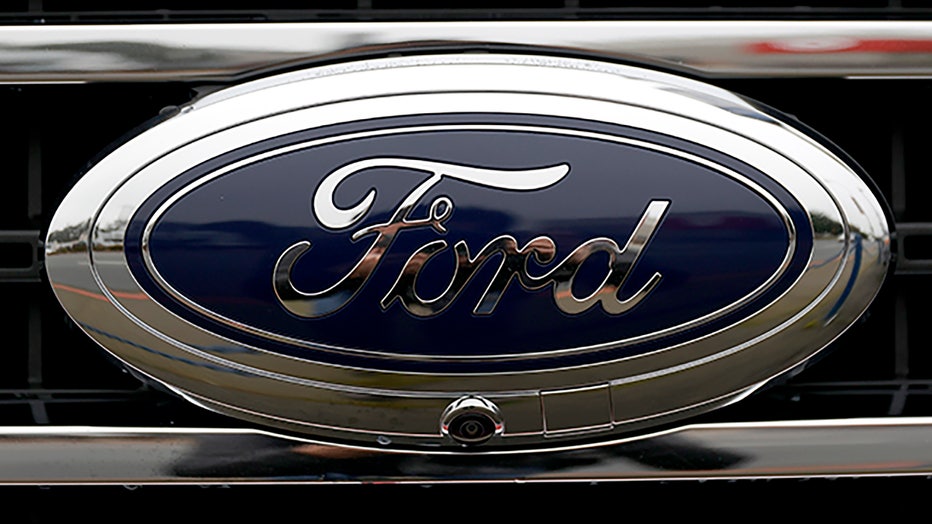
Ford log (Photo by Justin Sullivan/Getty Images)
In July, Ford recalled more than 870,000 newer F-150 pickup trucks in the U.S. because the electric parking brakes can turn on unexpectedly.
The recall covered certain pickups from the 2021 through 2023 model years with single exhaust systems. Ford's F-Series pickups are the top-selling vehicles in the U.S.
In October, Ford Motor Co. recalled 238,364 Explorers because the rear axle mounting bolt on some models may fracture and cause the driveshaft to disconnect.
According to the National Highway Traffic Safety Administration (NHTSA), a disconnected driveshaft can result in a loss of drive power or a vehicle rollaway if the parking brake is not applied.
Chrysler: 45 recalls, 2.7 million vehicles potentially impacted

Jeep logo (Photo by Jakub Porzycki/NurPhoto via Getty Images)
In February, nearly 341,000 Ram diesel trucks were recalled over an electrical connector issue that can overheat, resulting in a possible fire. In one case, the owner reported that a fire started after the truck’s engine was shut off.
Ram, a division of Stellantis, told drivers of impacted trucks to park them outdoors in the meantime. The company is recalling the trucks to replace the connectors after getting reports of six potentially related fires.
In May, Chrysler-parent Stellantis recalled more than 132,000 Jeep Cherokee vehicles over the risk of fire, telling owners to park their SUVs outside in the meantime.
The recall impacts certain model year 2014-2016 Jeep Cherokee vehicles, the National Highway Traffic Safety Administration said.
Mercedes-Benz: 31 recalls, 478,173 vehicles potentially impacted

Mercedes-Benz logo (Photo by Artur Widak/NurPhoto via Getty Images)
BMW: 30 recalls, 332,954 vehicles potentially impacted
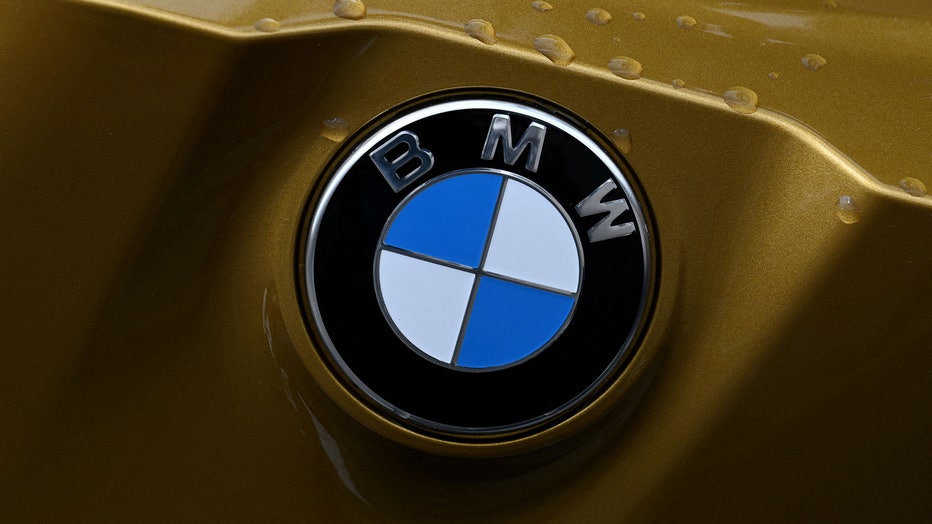
BMW logo (Photo by Christof STACHE / AFP) (Photo by CHRISTOF STACHE/AFP via Getty Images)
In December, BMW recalled a small number of SUVs in the U.S. because the driver's air bag inflators can blow apart in a crash, hurling metal shrapnel and possibly injuring or killing people in the vehicles.
U.S. auto safety regulators say the recall covers 486 X3, X4 and X5 SUVs from the 2014 model year that are equipped with air bags made by Takata Corp. of Japan.
The recall raises questions about the safety of about 30 million Takata inflators that are under investigation by the National Highway Traffic Safety Administration. Most have not been recalled.
General Motors: 25 recalls, 2 million vehicles potentially impacted

GM logo (Photo by Mario Tama/Getty Images)
In April, General Motors recalled certain Chevrolet Silverado medium-duty trucks for model year 2019 or later, following the discovery of a potential leak in brake fluid that could result in a fire.
Potentially 40,428 vehicles could be affected. They include 4500HD, 5500HD, and 6500HD models with model years between 2019 and 2023.
Nissan: 23 recalls, 1.8 million vehicles potentially impacted
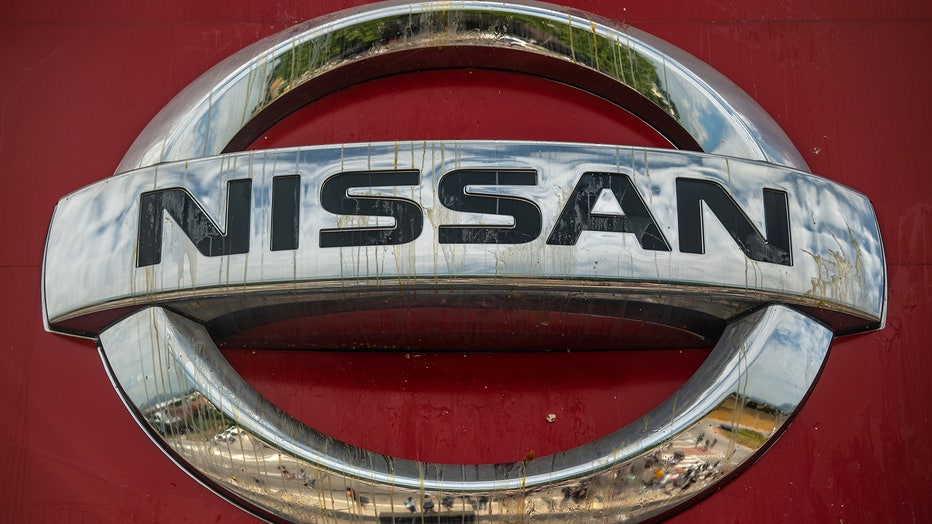
A Nissan logo (Photo by David Ramos/Getty Images)
In February, Nissan recalled more than 463,000 older vehicles because the emblem on the steering wheel can come loose when the air bag is deployed and injure drivers.
The recall mainly in North America covers certain Frontier small pickups, Titan large pickups and Xterra, Pathfinder and Armada SUVs from 2008 through 2011. Also included are Quest minivans from 2008 and 2009, as well as about 11,000 parts used for service.
Also in February, Nissan recalled more than 809,000 small SUVs in the U.S. and Canada because a key problem can cause the ignition to shut off while they're being driven.
The recall covers certain Rogues from the 2014 through 2020 model years, as well as Rogue Sports from 2017 through 2022.
Kia: 21 recalls, 3.1 million vehicles potentially impacted
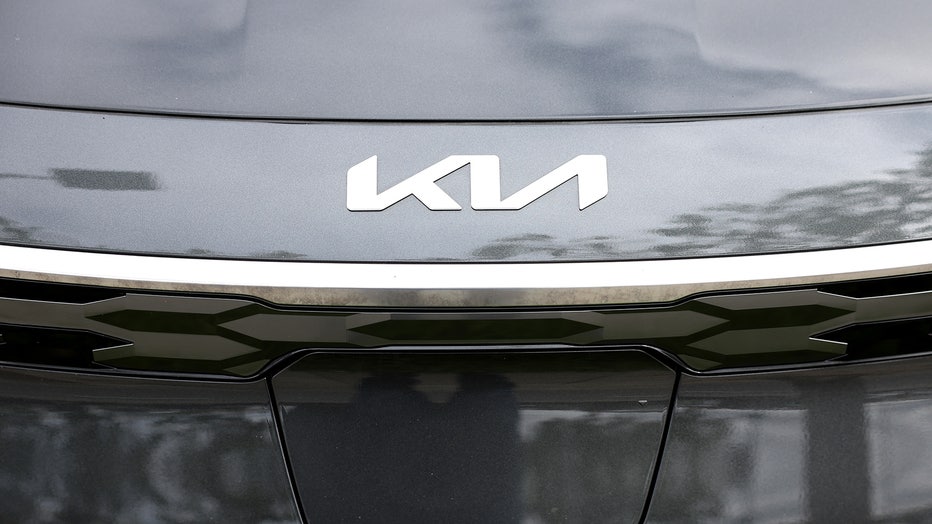
Kia logo (Photo by Justin Sullivan/Getty Images)
In August, Hyundai and Kia told the owners of nearly 92,000 vehicles in the U.S. to park them outside because an electronic controller in an oil pump can overheat and cause fires. The affiliated Korean automakers recalled the vehicles and told owners to park them away from structures until repairs are made.
The recalls cover certain 2023 and 2024 Hyundai Palisades, as well some 2023 Tucson, Sonata, Elantra and Kona vehicles. Affected Kias include the 2023 Soul and Sportage as well as some 2023 and 2024 Seltos vehicles.
Jaguar: 21 recalls, 85,205 vehicles potentially impacted

Jaguar mascot (Photo by National Motor Museum/Heritage Images/Getty Images)
In June, Jaguar recalled more than 6,000 I-Pace electric SUVs in the U.S. due to the risk of the high-voltage battery catching fire, and told owners to park them outdoors.
The recall was the latest in a series of electric vehicle battery recalls because of the potential for fires.
Volkswagen: 20 recalls, 452,762 vehicles potentially impacted
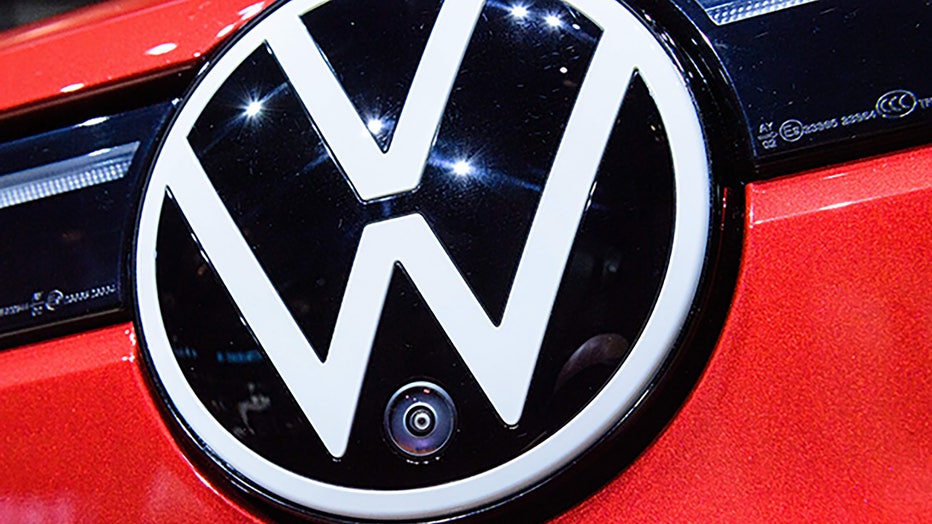
Volkswagen logo (Photo by JENS SCHLUETER/AFP via Getty Images)
In April, Volkswagen of America issued a recall on select 2018-2021 Atlas and 2020 Atlas Cross Sport vehicles due to "faulty occupant detection systems in the front passenger seat."
The recall affects 143,053 vehicles.
Honda: 19 recalls, 6.3 million vehicles potentially impacted
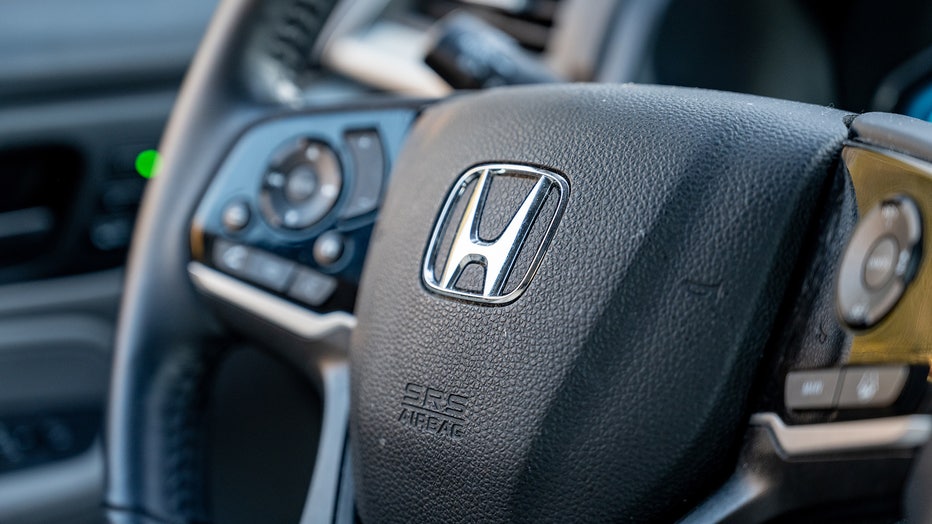
Honda logo (Photo by Smith Collection/Gado/Getty Images)
In November, Honda recalled several hundred thousand 2023-2024 Accord and HR-V vehicles due to a missing piece in the front seat belt pretensioners, which could increase injury risks during a crash.
The pretensioners — which tighten seat belts in place upon impact — may be missing the rivet that secures the quick connector and wire plate. This means that passengers may not be properly restrained in a crash, regulators said.
In December, Honda Motor's American arm recalled more than 2.5 million vehicles in the U.S. due to a fuel pump defect that can increase risks of engine failure or stalling while driving.
According to documents published by the National Highway Traffic Safety Administration, the fuel pump impeller used for 2017-2020 Acura and Honda vehicles was improperly molded.
Hyundai: 18 recalls, 2.6 million vehicles potentially impacted
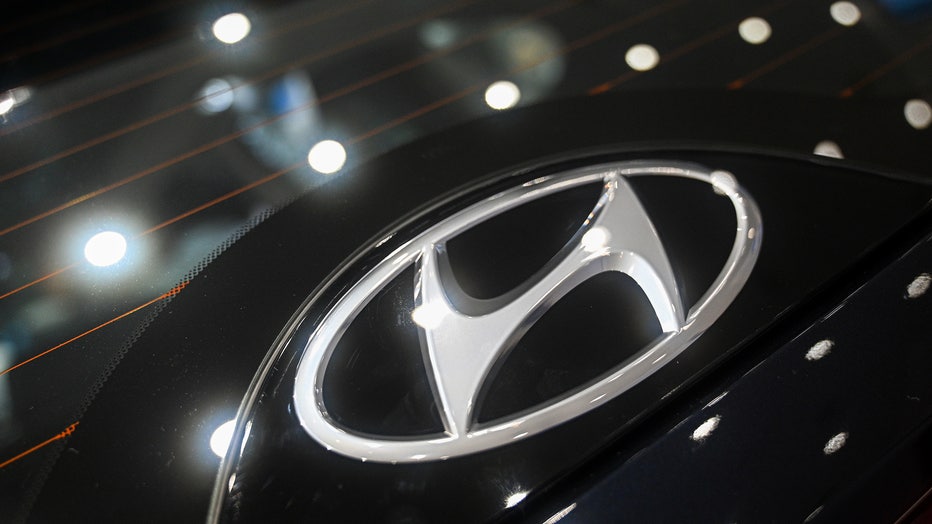
Hyundai logo (Photo by Sankhadeep Banerjee/NurPhoto via Getty Images)
In February, Hyundai recalled more than 65,000 vehicles for an issue that may cause seat belt pretensioners to explode in a crash, potentially injuring occupants of the car, U.S. transportation officials said.
A seat belt pretensioner is a part of the seat belt system that locks the seat belt in place during a crash. A total of 65,517 Genesis SUVs and sedans, Hyundai’s luxury brand, are part of the recall.
Toyota: 14 recalls, 4.3 million vehicles potentially impacted

The Toyota logo (Photo by Justin Sullivan/Getty Images)
In November, Toyota recalled nearly 1.9 million RAV4 small SUVs in the U.S. to fix a problem with batteries that can move during forceful turns and potentially cause a fire.
The recall covers certain RAV4s from the 2013 through 2018 model years.
In December, Toyota Motor Co. recalled 1 million vehicles over a defect that could cause airbags not to deploy, increasing the risk of injury.
The recall covers a range of Toyota and Lexus vehicles with model years from 2020 to 2022. Included in the recall are Toyota Avalons, Camrys, Highlanders, RAV4s, Siennas and Corollas, plus some hybrids of those models. The Lexus models in the recall include the ES250 seddan and the RX350 SUV, among others.
Tesla: 14 recalls, 2.6 million vehicles potentially impacted
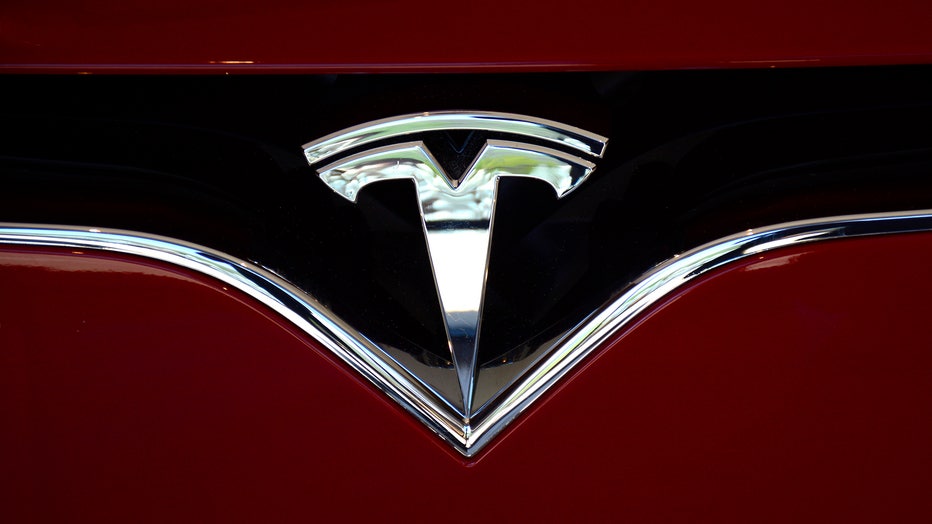
The Tesla brand logo embellishes the nose of a Tesla electric sedan in Vail, Colorado. (Photo by Robert Alexander/Getty Images)
In December, Tesla recalled nearly every vehicle it ever sold – roughly 2 million of them – to fix a defective system that’s supposed to ensure drivers are paying attention when they use Autopilot.
The recall comes after a two-year investigation by the National Highway Traffic Safety Administration into a series of crashes that happened while the Autopilot partially automated driving system was in use. Some were deadly.
The Associated Press, FOX's Kelly Hayes and FOX Business contributed to this report.

